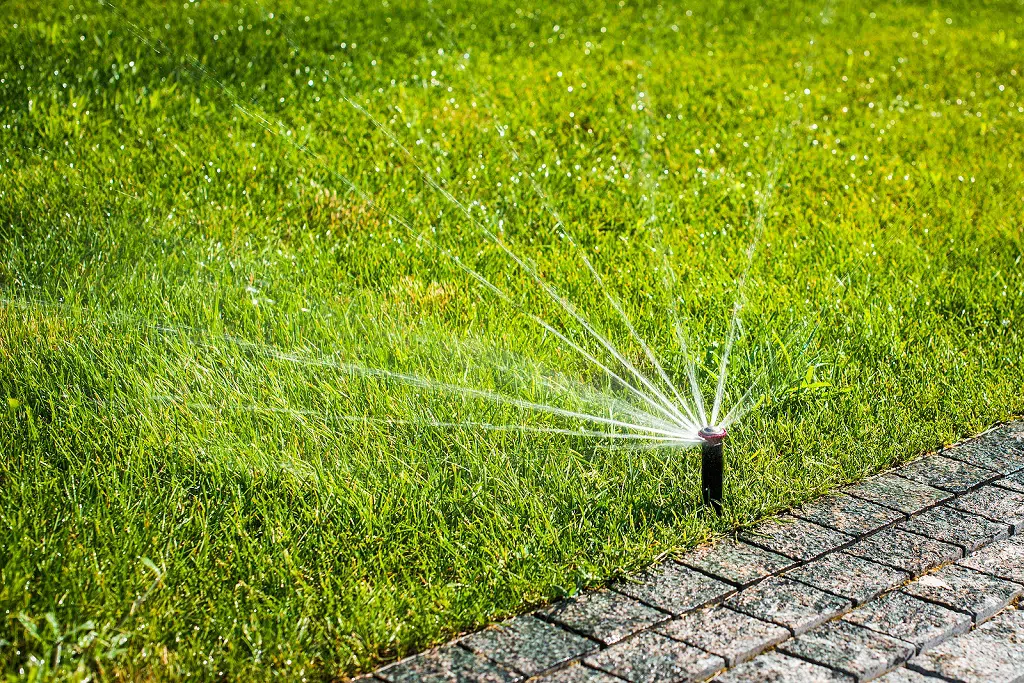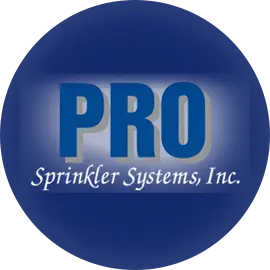
A sprinkler system offers unparalleled convenience when maintaining a lush, green lawn. Hence, it’s crucial to winterize your sprinkler system to ensure it’s in the best condition. During winter, temperatures can dip below freezing, easily damaging your lawn sprinkler system. That’s why it’s wise to enlist the expertise of professionals like Pro Sprinkler Systems INC to properly prepare and safeguard your system against the harsh winter conditions.
Winterizing your sprinkler system is the best and most effective way to prepare it for winter weather and avoid costly repairs at the start of spring. However, you need to winterize correctly to ensure maximum protection of your system’s vents and pipes from the cold.
How Do I Prepare My Sprinkler System for Winter?
If you live in a region where winter temperatures plunge to the freezing mark, follow these simple steps to prepare your system for winter.
Turn Off the Water and the Timer
Shut off the main water supply to the irrigation system from the main valve, usually outside the house near your water meter. You also need to shut systems off with backflow prevention valves, which will prevent water from flowing into the system.
If you have an automatic system, use the “off” or “rain mode” setting to shut off the timer. Running your system in rain mode lets you shut down the timer without losing your programmed settings, such as the valve run times, start time, and clock. This way, the timer will continue working usually come spring.
Drain the Water
After you’ve shut off the water supply, the next step is to drain out water trapped in your sprinkler system. Draining the water from the pipes and pumps ensures water won’t freeze inside and break them once temperatures plunge. There are three methods for draining pipes depending on the type of system you have.
Manual Draining
Drain the water manually if your sprinkler system has shut-off valves, usually found at low points or ends of the piping. Locate and open the drain valves manually and let the water drain out. Be sure to lift the sprinkler heads to let the water trapped inside run out. Keep the valves open until all the water inside the sprinkler heads and pipes has been drained. Then close the drain valves to prevent snow or winter rain from getting inside. To safely perform this step, be sure to wear eye protection since the water in the system is under pressure.
Automatic Draining
If your system has automatic drain valves, you need to shut off the main valve and wait. Any water trapped inside the system will automatically drain once the pressure drops. Run one of the sprinkler heads to activate the system with the water supply off. Open the drain cap usually found between the backflow device and main valve to let air get into the system and any water potentially trapped inside to flow out. You can also lift the sprinkler heads to drain any leftover water.
Blow-Out Draining
For systems with electric valves, you need to blow out the water with pressurized air. You can do this by hooking an air compressor to the pipes to drain any leftover water from the sprinkler heads. However, you need to ensure your air compressor can generate the 80 to 100 cubic feet per minute (CFM) pressure supply required to blow out the water inside the piping completely.
If an insufficient volume of air is used, you could end up leaving some water inside the system. The remaining water may drain into low spots, subjecting your system to freeze damage. Also, if you use excess pressure, you could end up blowing the sprinkler nozzles off, damaging the pipes and fittings. So, you need to adjust the air compressor accordingly to ensure it delivers the required volume and pressure to blow out the remaining water completely.
For that reason, it’s always best to let a professional do the job for you. This will help ensure you don’t damage your sprinkler system accidentally. It’s also crucial to ensure all water wells, booster pumps, fertigation systems, or alternate water supplies you have are adequately drained to get rid of any remaining water.
Insulate Above-Ground Components
After draining the water in your sprinkler system, you need to properly insulate all the above-ground components to prevent them from freezing and cracking. Wrap any above-ground backflow preventers, pipes, and main shut-off valves in insulation tape or foam covers. Don’t block any drain outlets and air vents while insulating your backflow preventers. If necessary, cover your irrigation system with pine straw for added warmth. For commercial properties in Westchester, it’s crucial to take these steps to protect your investment. Enlist the expertise of professionals like Commercial Irrigation System Westchester to ensure thorough winterization and reliable performance year-round.
Should I Run My Sprinklers Before a Freeze?
Yes, you can run your sprinkler system before a freeze, but make sure there is time to winterize your sprinklers afterward. You should blow out the system with an air compressor before the outdoor temperatures drop below zero degrees Fahrenheit.
Can I Winterize My Sprinkler System?
Yes, you can winterize your sprinkler system, depending on the type of system you have. Not all sprinkler systems are the same, and the type you have will determine the steps to take and the tools to use when winterizing it.
For example, you would need to have the mechanical and technological knowledge to blow out with an air compressor correctly. If you use the wrong size air compressor or incorrect air volume, you could quickly ruin your irrigation system. Learning safety precautions will protect you from the potential dangers of winterizing a sprinkler system yourself.
While you can blow out your irrigation system by yourself, the safest and most effective way is to hire a contractor to winterize your sprinklers for you.
What Happens If I Don’t Winterize My Sprinkler System?
If you don’t winterize your sprinklers, the water will freeze in the valves, pipes, fittings, and sprinkler heads. When water freezes, it expands, causing the different parts of your system to crack or burst, damaging your sprinkler system. Some parts can receive severe damage and not be reparable, requiring replacement.
PRO Sprinklers Is Here to Help!
Winterizing your system is the best way to protect the sprinkler from harsh winter weather. Winterization should be done correctly to avoid costly repairs and replacements in the spring at system start-up. Repairing freeze damage will cost more than preventative maintenance.
Sprinkler winterizations performed by PRO Sprinklers will ensure that your sprinkler system is protected!
Be prepared for what Mother Nature will deliver this winter, and schedule your lawn sprinkler winterizing. Contact us at PRO Sprinklers, your lawn sprinkler company in Westchester County, at (914) 277-3827 right away!
